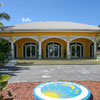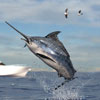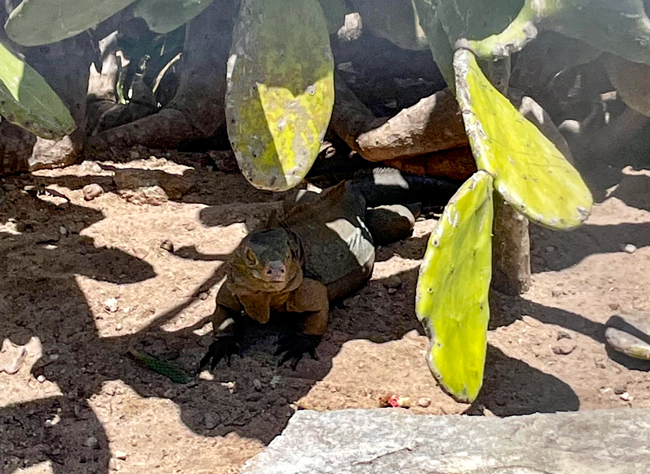
The Rare Rock Iguanas of San Salvador
There are a few of them in the wild, but they are a rare sight on San Salvador
Iguana Species
The Bahamian Rock Iguana is one of the largest species of lizards. They thrive best in areas that are dry and sandy.
Throughout The Bahamas there are three species of iguanas in the genus Cyclura - Cyclura cychlura, Cyclura carinata, and Cyclura rileyi. There are also seven subspecies of Bahamian Rock Iguana. The iguanas found on San Salvador fall into the subspecies - Cyclura rileyi rileyi. All species of Bahamian Rock Iguana are listed by the International Union for the Conservation of Nature (IUCN) as ‘rare’. The subspecies endemic to San Salvador is believed to be the most rare.
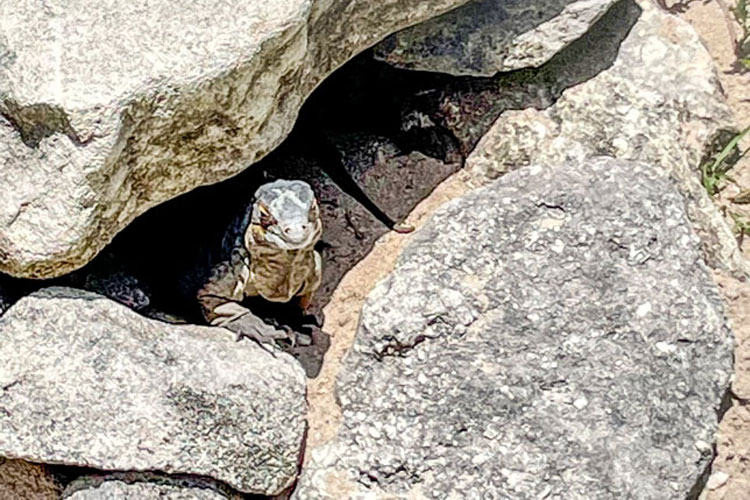
Threats
Iguana populations, though vulnerable to extinction, continue to survive in the face of many threats. Feral pigs, dogs and cats are known to prey on rock iguanas. Rats in particular ravage nesting sites. Natural disasters such as hurricanes present a constant threat to iguana populations. Sea level rise and inundation of coastal habitats is also of significant concern.
In addition, man-made threats pose considerable threat to rock iguanas. Illegal capture and export for the international pet trade, deforestation and loss of habitat to development as well as human interaction are some of the prevalent issues. At present, the IUCN identifies the greatest threat as man-made, in particular, the poorly regulated feeding interactions between rock iguana populations and tourists. The impact of tourist interactions on the Allen’s Cay iguanas has been studied.
Findings show that the high sugar content of grapes fed to them by tourists, is having a negative impact on their ability to regulate their blood glucose levels. A condition akin to Type 2 diabetes in humans. Source https://www.earth.com/news/excess-sugar-is-toxic-to-rock-iguanas-on-remote-islands/
Conservation Efforts
The Gerace Research Center in San Salvador is home to a population of rock iguana endemic to San Salvador. These iguanas are housed at the Rock Iguana Conservation Center in a natural habitat. The Center was established in May 2012 for the conservation of the then estimated population of 500 iguanas. Wild populations of San Salvador iguanas are known to be spread across a few small uninhabited outer cays and tiny islets found in inland lakes.
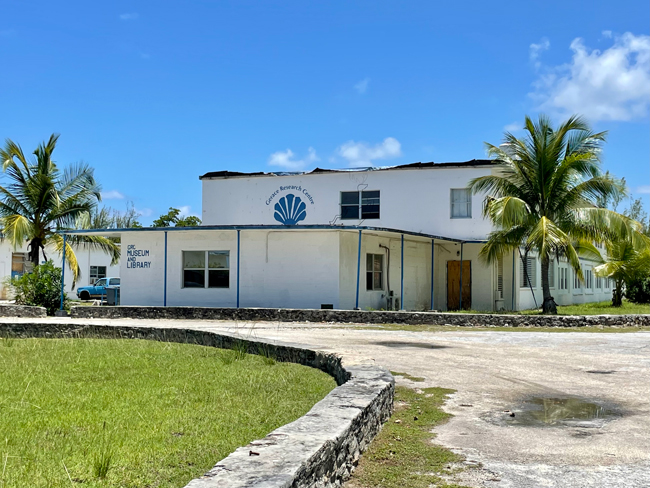
Visitors can view the iguanas housed at the research center, however, it is important to leave nothing but a donation. Attempts should not be made to feed or interact closely with the critically endangered iguanas. The Rock iguanas of The Bahamas are all protected by the Wild Animal (Protection) Act of 1968, making it illegal to harm, capture or export them.
Interesting Facts about the Bahamian Rock Iguana
Rock Iguanas:
- Are vegetarian
- Take 6-9 years to reach sexual maturity
- Are between 2-3 feet in length
- Lay 3-12 eggs in shallow sand which hatch around 12 weeks later
- Can live to be 40 years old
- Use to be eaten by early inhabitants of the islands
- Can also be found in Exuma, Andros, Acklins and Mayaguana
- Rock iguanas can voluntarily sever their tail to distractor predators. This self-defense mechanism is called autotomy.
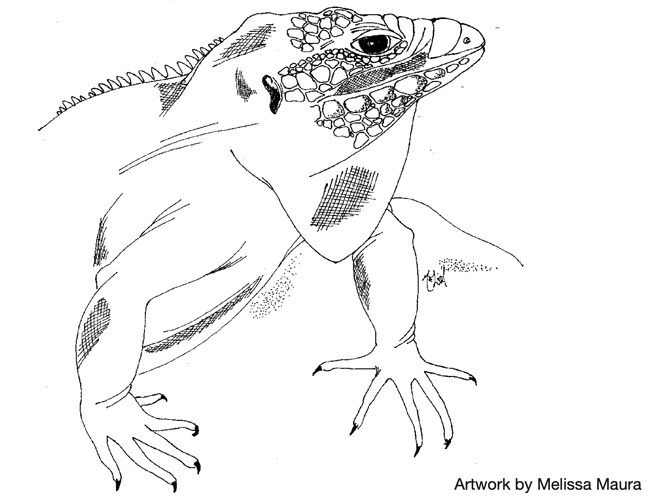
This drawing comes from The Bahamas National Trust.
